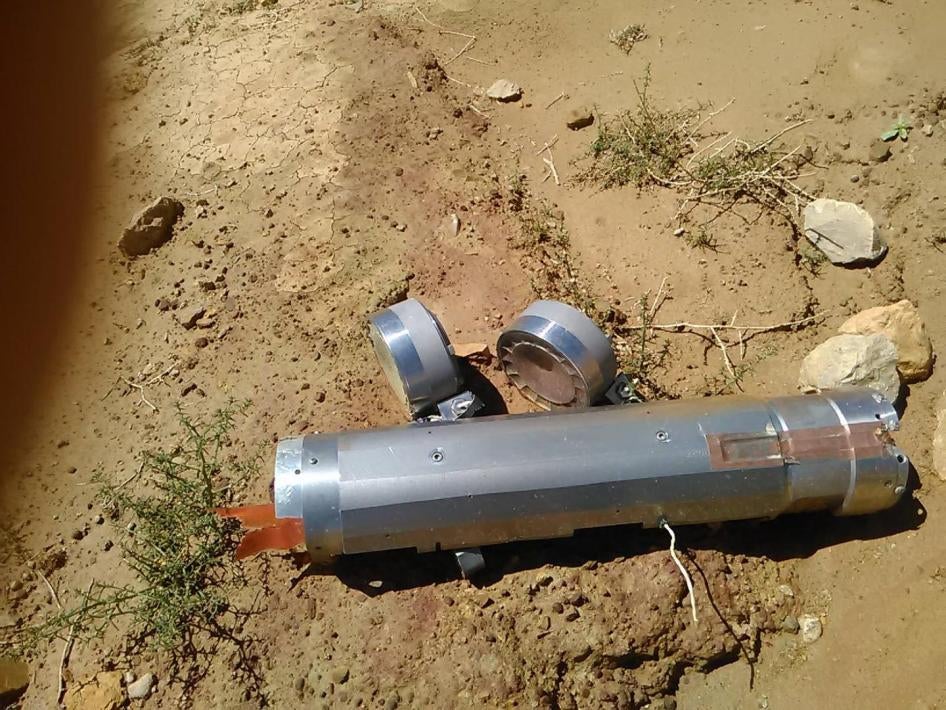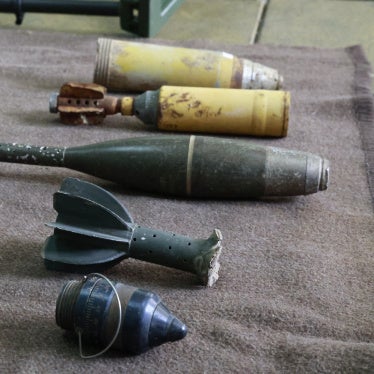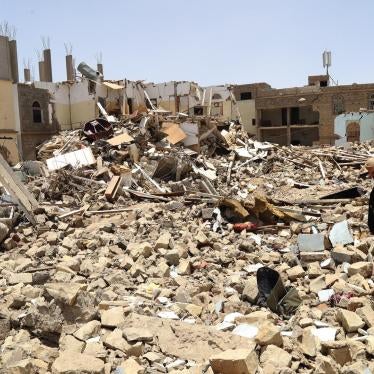At the end of May, the Obama administration quietly suspended transfers of cluster munitions to Saudi Arabia following concern raised by evidence showing that the Saudi-led coalition had used US cluster munitions in or near civilian areas in Yemen. A congressional initiative led by Representative John Conyers Jr. that sought to legislate that suspension was narrowly defeated today.
Human Rights Watch and others have systemically documented evidence showing continued use of cluster munitions, even after Saudi officials publicly claimed it was not using them.
The US may have been motivated by the civilian suffering, but likely also by concerns the Saudi-led coalition appears to be violating US export law provisions dating back to 2007 that permit transfers of cluster munitions with a failure rate of less than 1 percent as long as they are not used in civilian areas.
One of the two US producers of cluster munitions is Textron Systems, manufacturer of the CBU-105 Sensor Fuzed Weapons used by Saudi Arabia in its ongoing military campaign in Yemen against the Houthis and allied forces since April 2015. Human Rights Watch representatives have regularly met with Textron officials to discuss the company’s production of this weapon, which is banned by the Convention on Cluster Munitions. Textron has reportedly said it does not intend to comment on the new US policy suspending transfers before it gets official confirmation from the government.
Last November, Singapore Technologies Engineering – the country’s only cluster munition producer – announced it has stopped producing cluster munitions. The company said it is “now no longer in the business of designing, producing and selling” cluster munitions or “any related key components.” According to its president, the company took the decision after being asked repeatedly by the investor community about its position on producing weapons banned by international law.
Public pressure seems to be mounting against Textron. Outside Textron’s headquarters in Providence, Rhode Island, local activists have been demonstrating for weeks – demanding that the company cease its production of cluster munitions. Textron should follow the example set by Singapore Technologies Engineering and commit to stop making these indiscriminate weapons as a way to assure the public that it is responsive to global concern at civilian suffering.
And now investors are under pressure to act. According to a report released today by Dutch civil society group PAX, at least 158 financial institutions worldwide have invested more than US$28 billion in seven producers of banned cluster munitions located in China, South Korea, and the United States, including Textron. While these three countries have refused to join the 2008 treaty prohibiting cluster munitions, PAX and others are urging investors to pressure companies to stop making these weapons.










